Ted Nolan opened the front door to his house and "felt a stab of anxiety."
A delivery man handed him a box, and the coach knew what was in it: the Jack Adams Award, presented annually to the NHL's top bench boss. A range of emotions rushed through Nolan's body, then "pure anger."
Nolan's recently released memoir begins with this dramatic scene from 1998.
"I lifted my foot and, with all the strength I had, kicked the box, sending it hurtling down the basement stairs," Nolan writes in "Life In Two Worlds: A Coach's Journey from the Reserve to the NHL and Back."
"I heard it land with a loud metallic crash," he continues. "Then I turned and went upstairs, determined to forget everything about it."
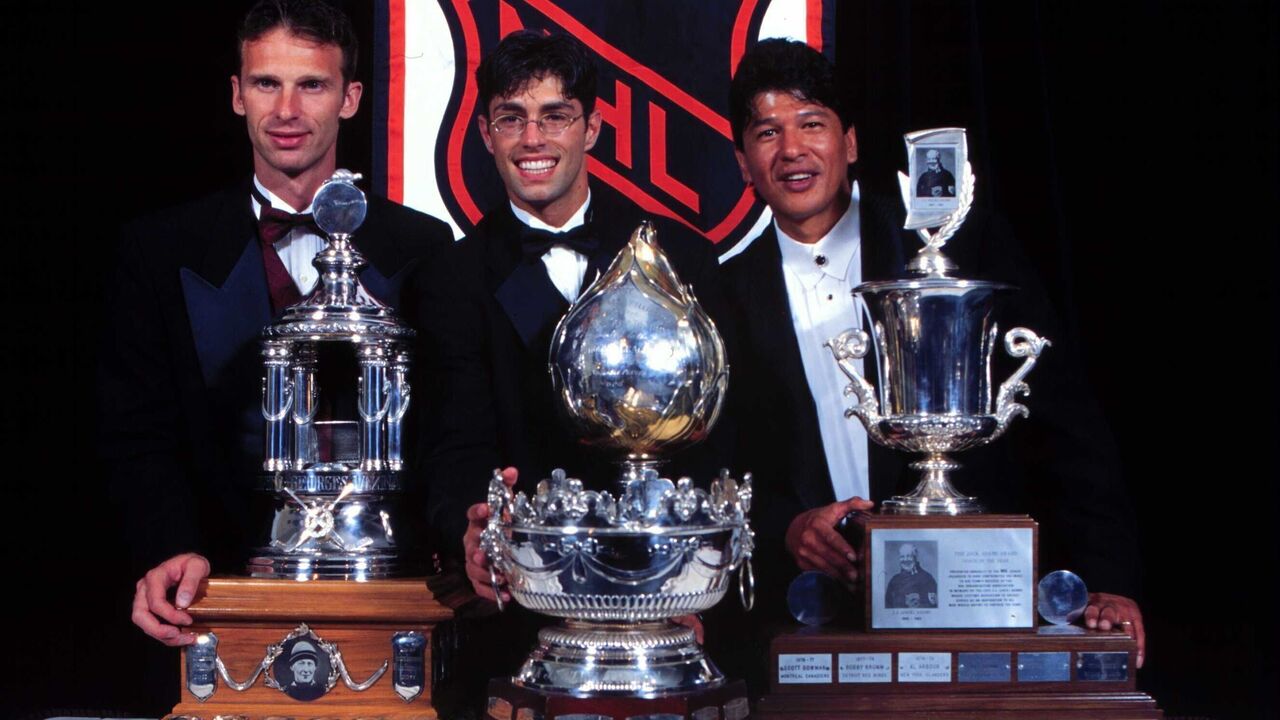
Nolan, who coached 471 career games in the NHL, couldn't bear to enjoy his accomplishment that day, months removed from when he first posed with the trophy on the big stage. In the intervening period, he felt betrayed by the hockey world, especially the Buffalo Sabres, and found himself in a dark place.
"I was so angry. At that time, every tough situation in my life - in hockey, outside of hockey - I had sucked in. I hadn't dealt with any of it," Nolan recalled in a recent phone interview with theScore.
Nolan's faced many tough situations throughout his life.
Racism at every turn
Nolan is a member of the Ojibway tribe. The third youngest of 12 kids, he grew up in the Garden River First Nation east of Sault Ste. Marie, Ontario. The family lived in a relatively small house, and didn't have access to electricity or running water for the first few years of Nolan's life, in the late 1950s and early '60s.
Nolan details in his memoir the racism he faced at seemingly every turn of his playing and coaching careers as an outsider in a predominantly white sport.
His welcome to Junior A in Kenora, Ontario, included a teammate asking, "What are you doing here, ya stinkin' Indian?" Fans hurled slurs associated with Indigenous stereotypes - that he was poor or drunk. He was targeted physically on and off the ice, always having to protect himself.
"I was up there by myself and I learned to fight through. Thankfully, I did," Nolan said of deciding to ride out the season in Kenora, despite family insisting he return to Garden River, where everybody accepted him.
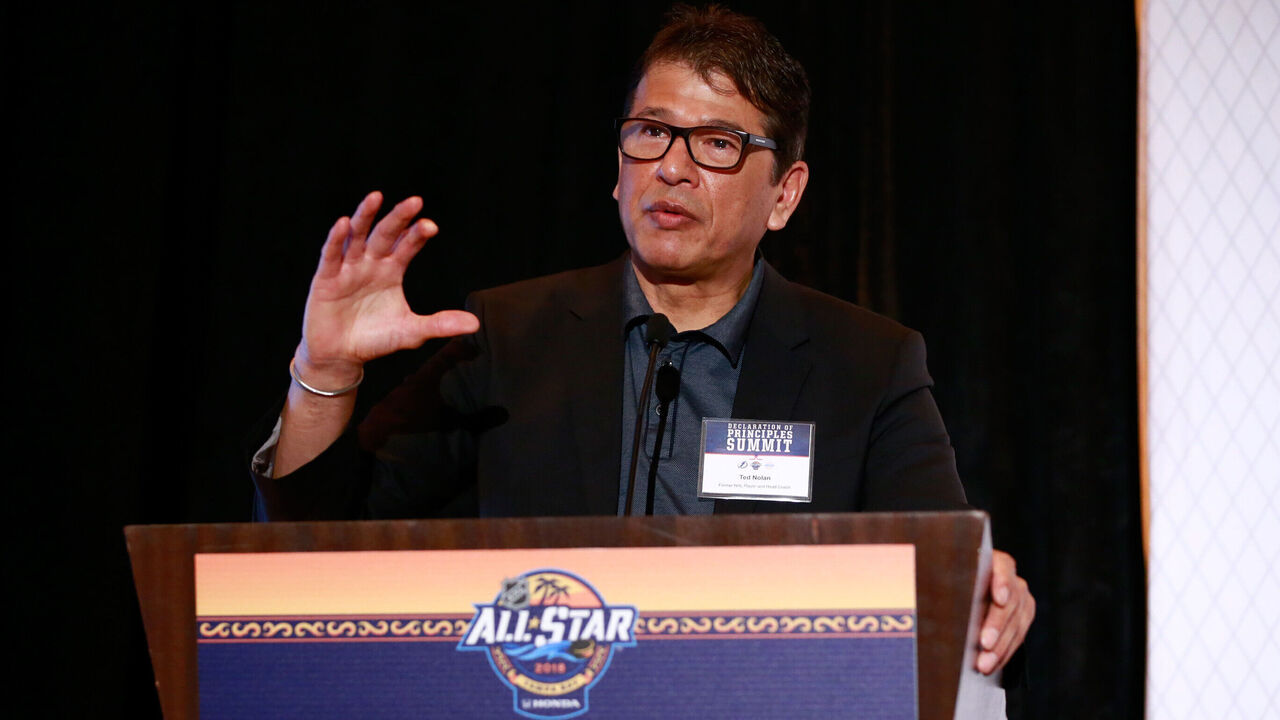
The pros weren't much better for Nolan, a winger who dressed for 78 NHL games split between the Detroit Red Wings - who drafted him in the fifth round in 1978 - and the Pittsburgh Penguins.
Nolan had tears in his eyes when he stepped onto NHL ice for the first time. He thought about his community, particularly countless Indigenous kids who never realized their dreams. "This is for all of you," he said quietly to himself.
Nolan's father, who died when Nolan was 16, told his children to "always be proud of who you are," and Nolan's kept those words in mind.
But the lack of respect continued.
"Some of the guys on the other pro teams would call me names on the ice," Nolan said. "I'd look back at them, and I could see in their eyes that they felt sheepish about what they said. They probably didn't really know what they were saying. They just heard it from someone else. It was pure ignorance."
After retiring in 1986, Nolan began climbing the coaching ranks, first landing a job in the OHL as an assistant coach, then becoming an OHL head coach, NHL assistant, and finally an NHL head coach. Racism followed him around the continent. Vitriol from rival fans got so bad during a stint with the QMJHL's Moncton Wildcats in 2005 that he needed a police escort to exit the arena.
Fighting negative labels
Nolan coached in Hartford (Whalers assistant) and New York (Islanders head coach), but he's best known for two stints in Buffalo: 1995-97 and 2013-15.
He won the 1996-97 Jack Adams Award the same year Sabres center Michael Peca took home the Selke Trophy and goalie Dominik Hasek won the Vezina, Hart, and Pearson. The Sabres, a blue-collar squad with arguably the best goalie of all time in the prime of his career, lost in Round 2 of the playoffs.
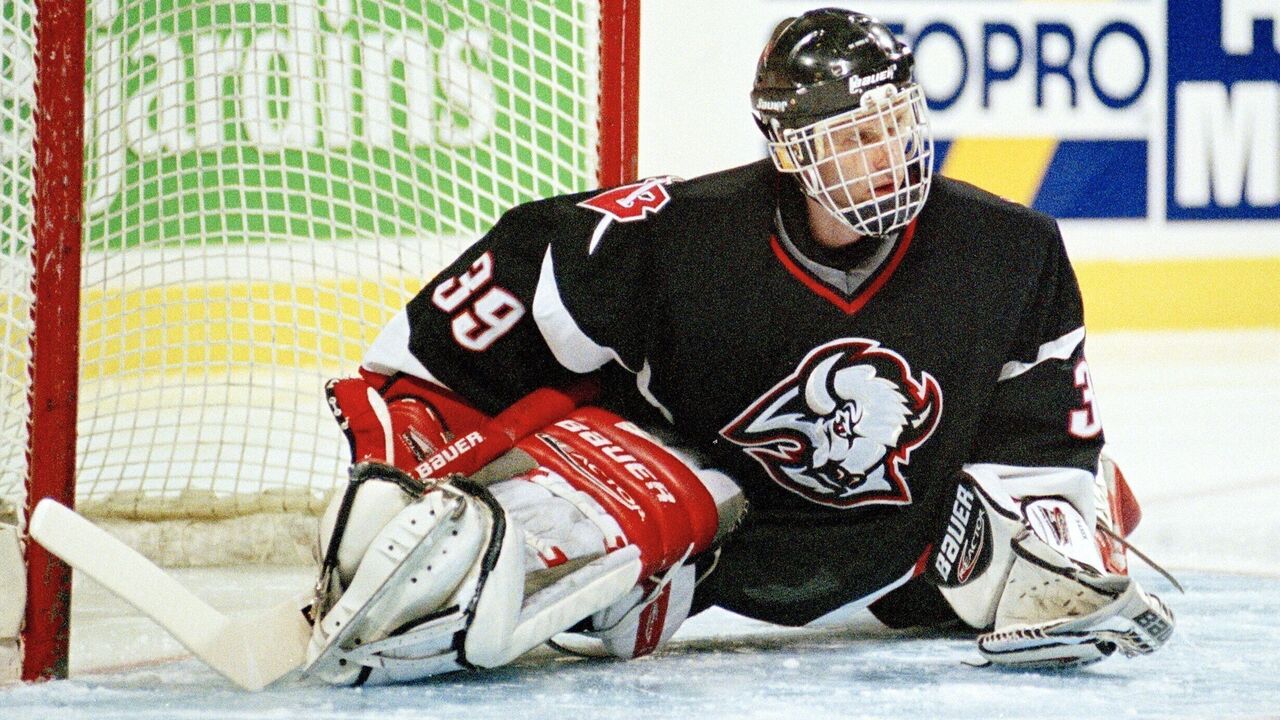
Nolan and the club's general manager, John Muckler, didn't see eye to eye from Day 1 of Nolan's first stint. Nolan felt the GM wanted too much control of the lineup. Nolan also believed the GM felt his coach was too cozy with captain Pat LaFontaine and some members of ownership.
Local media made behind-the-scenes drama public, and when Hasek told a radio station he wanted Nolan gone, there was no turning back.
First, Muckler was fired, which led to Nolan being called a "GM killer" by commentator Don Cherry. Incoming GM Darcy Regier offered Nolan a one-year contract extension. The lack of commitment was an "insult," so he turned down the deal, hoping to negotiate something better. Next thing Nolan knew, Regier was at his house, firing him face to face.
Nolan wouldn't run another NHL bench for six years, only returning when a retired LaFontaine gained hiring power in Buffalo's front office. The reunion, amid shameless tanking for Connor McDavid, lasted just 17 months.
Nolan wonders now if rejecting Regier's offer was shortsighted, and if another label - that Nolan's his "own worst enemy" - is at least partially true.
"Maybe I should have swallowed my pride and accepted the contract," Nolan writes. "At least I could have continued doing the work I loved, and had another chance to show I belonged in the league. Maybe, if I'd spent another year in Buffalo, I would have repaired any damage done to my reputation with the NHL power brokers and gone on to entertain big offers."
"But," he continues, "as difficult as the following years would be, I never for a moment looked back and thought accepting that one-year contract was a real possibility. The insult of it, along with the rumour of my drinking and irresponsibility, had revived such dark memories."
The lighter side
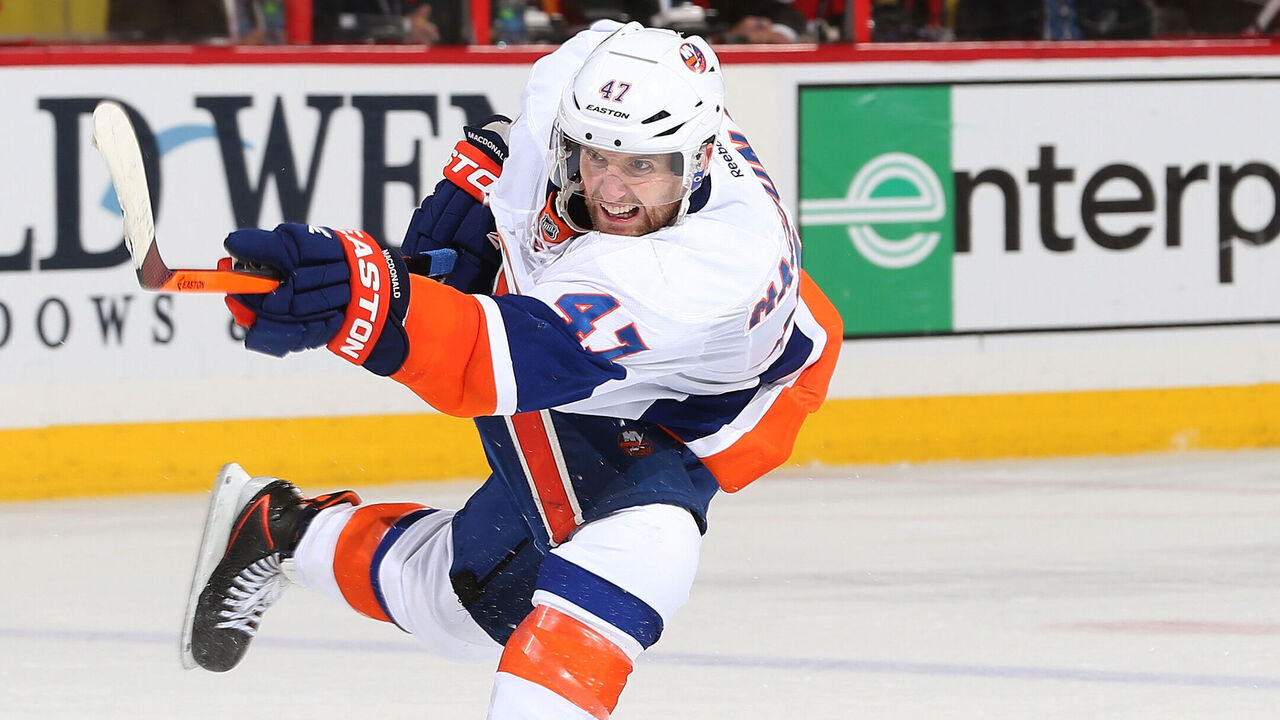
Nolan's book is mostly serious in tone, as he discusses some of the lowest points of his life, and Canada's history of mistreating Indigenous people.
Still, there are a few lighter anecdotes sprinkled in.
On playing with Wayne Gretzky, 5-8, baby-faced, and 16 years old on the Junior A Soo Greyhounds:
He probably weighed only about 155 or 160 pounds. A real string bean of a guy. Oh boy, I thought, he's going to get killed. And then he stepped out on the ice.
On the time he grabbed postgame drinks with legendary coach Mike Keenan:
'Always be ready to be fired, Ted,' he said. 'And always get fired when you have a year left on your contract, so that when you start somewhere else you're getting two paycheques.' He was already on his fourth NHL franchise as a coach (he'd get to eight during two decades in the league), and I guess his method meant a number of years with great income.
On former Islanders owner Charles Wang urging him to make a pick in the 2006 draft, and choosing Andrew MacDonald, a defenseman he previously coached:
As soon as I mentioned his name to Charles, the scouts began to flip through the scouting lists. 'He's not on here,' one of them said. 'I know,' I replied. 'But that doesn't mean we can't draft him.' ... Only three of our choices that year landed in the NHL for more than a couple of trial games, and only one, Kyle Okposo, our number one pick, had a longer NHL career.
Fire still burns
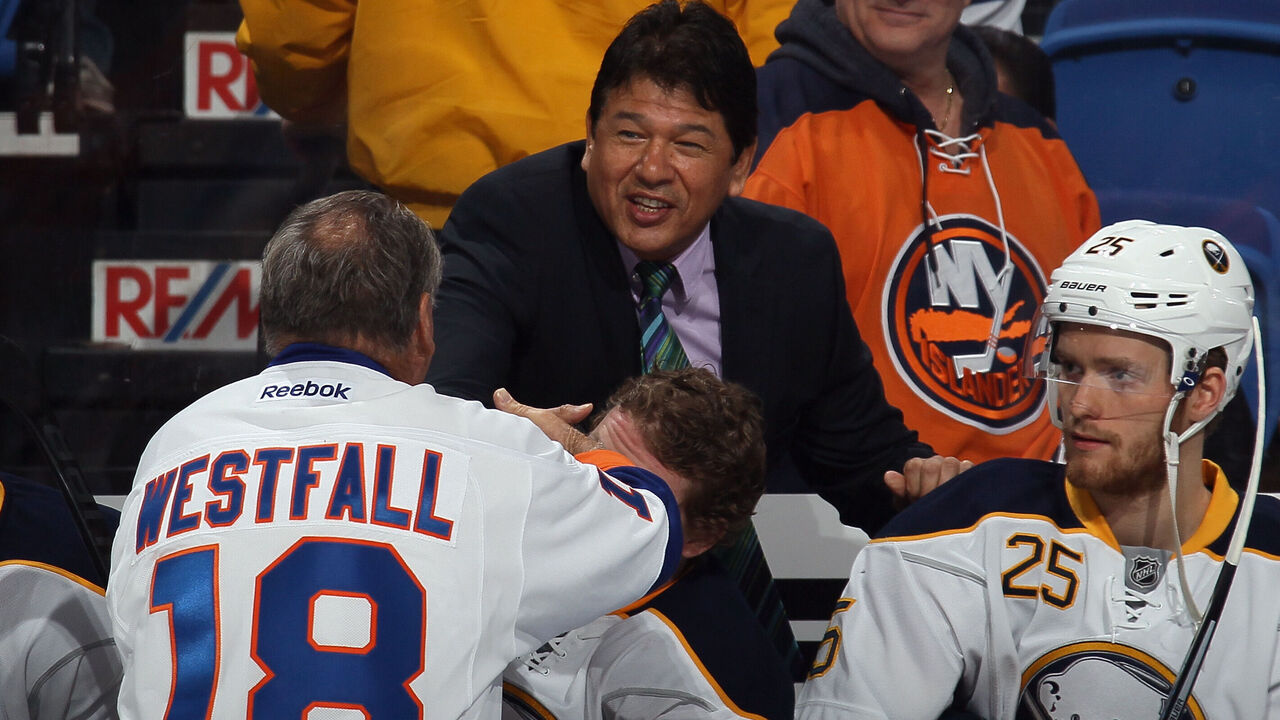
Nolan has hope.
For one, his sons Brandon and Jordan, now 40 and 34, didn't encounter the kind of overt racism he did when they played hockey at the minor, junior, and pro levels. For another, he recently watched little kids show empathy towards his baseball-playing grandson after he misjudged a ball and got hit in the head. "A lot of them ran over and asked him if he's OK," Nolan said.
He adds that recent hiring trends across the NHL, which have seen more women and people of color join front offices and coaching staffs, are a "step in the right direction." And he's immensely proud of the 3Nolans organization, founded by him and his sons, for its impact on Indigenous hockey players.
Nolan, who turned 65 this year, also has hope these days because he's feeling markedly better after being diagnosed with a form of blood cancer in March.
"My new heroes are people who go through this terrible disease. It's tough," he said. "Especially the chemo. It was really, really tough times. I went through it, and it wasn't fun. I had a stem cell replacement operation not too long ago. So I'm slowly getting my strength back. Knock on wood, we put this in remission for a little while and I'll be able to get back on the ice."
Nolan's last official coaching job was with Poland's national team five years ago. He said in the past he'd still be coaching at a high level if his skin was white. Does he believe that in 2023? Yes, "I still believe that," Nolan said.
"I really believe in relationships and growing up in the same environment," he said of feeling overlooked. "If you know someone, you're going to want to work with them. If you don't know them, it's hard. You make judgments."
Asked what his response would be if an NHL head coach called him today about joining the staff, Nolan didn't hesitate.
"I'd say: 'When can we start?'"
John Matisz is theScore's senior NHL writer. Follow John on Twitter (@MatiszJohn) or contact him via email (john.matisz@thescore.com).
Copyright © 2023 Score Media Ventures Inc. All rights reserved. Certain content reproduced under license.